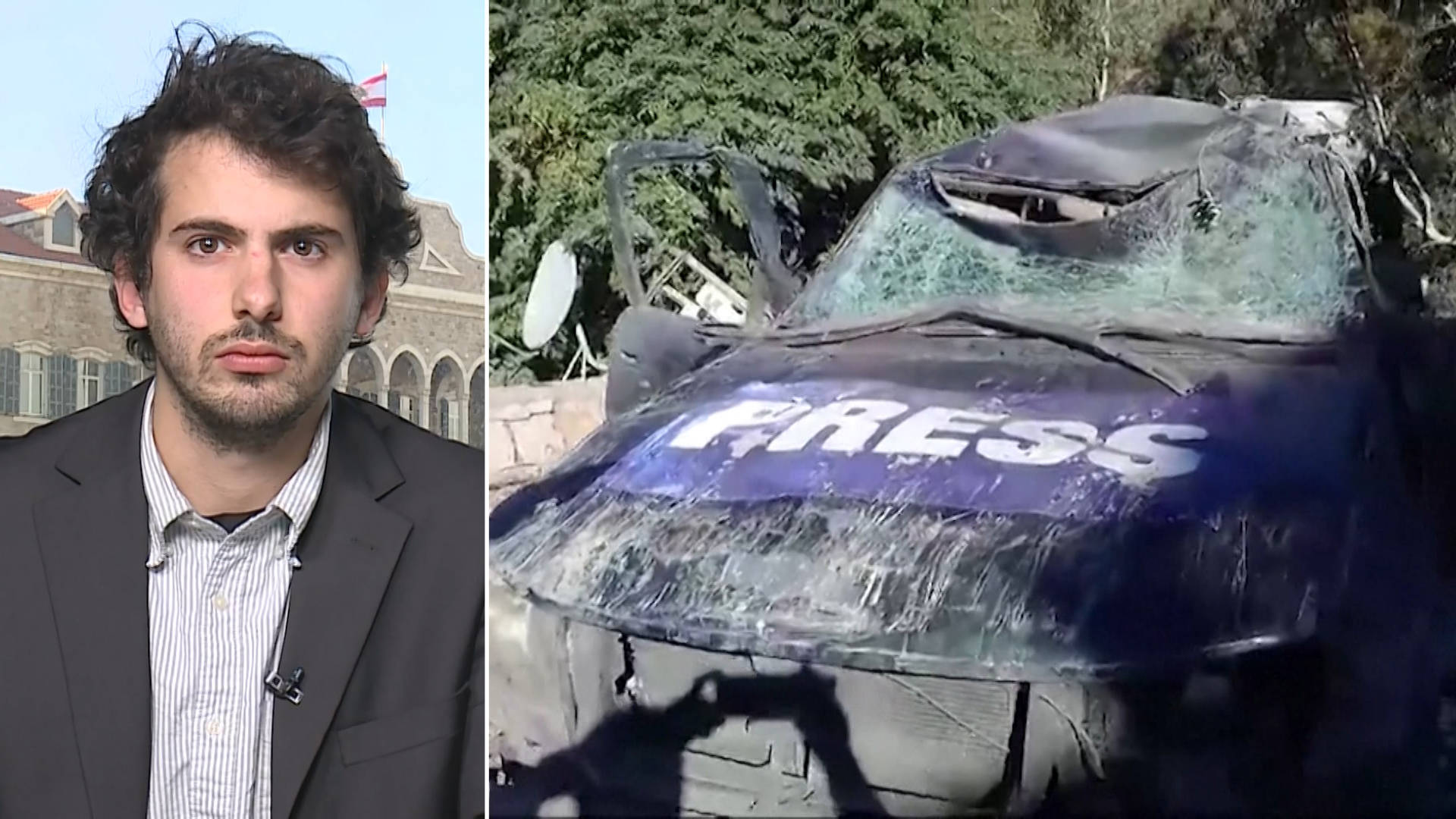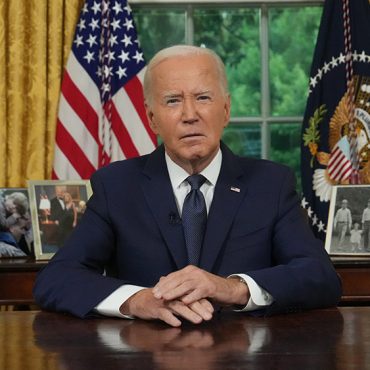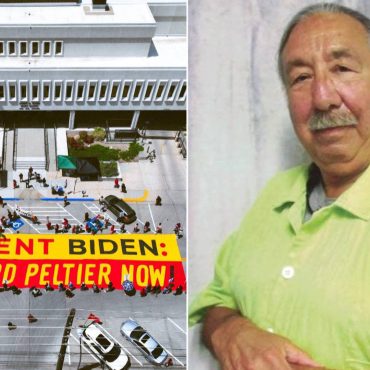This is a rush transcript. Copy may not be in its final form.
AMY GOODMAN: We begin today’s show in Lebanon, where Israel has killed at least 31 people over the past 24 hours, ahead of a possible ceasefire. Israel’s security cabinet is expected to vote today on a ceasefire proposal. One Saudi news outlet has reported President Biden and French President Emmanuel Macron will announce a 60-day ceasefire in Lebanon later today. Under the deal, the Israeli military would withdraw from southern Lebanon within 60 days, while Lebanon’s army would deploy to border areas from which Hezbollah has launched rocket attacks on Israel. According to Israeli officials, the proposed deal would allow Israel to continue to operate inside Lebanon to remove what it views as threats by Hezbollah. Lebanon’s Foreign Minister Abdallah Bou Habib spoke earlier today in Rome.
ABDALLAH BOU HABIB: The country as a whole is paralyzed. And we wanted to finish this and to have a ceasefire. Hopefully tonight, by tonight, we will have this ceasefire.
AMY GOODMAN: Since October last year, Israel has killed over 3,750 people in Lebanon, with most of the deaths occurring over the past 10 weeks. The Israeli attacks have forced more than a million people to flee their homes in Lebanon. About 60,000 people in northern Israel have also been displaced.
Israel has also targeted journalists in Lebanon. In a new report, Human Rights Watch has accused Israel of committing an “apparent war crime” by killing three journalists and injuring four others last month. On October 25th, Israel bombed the Hasbaya Village Resort in southern Lebanon, where more than a dozen journalists had been staying. The attack killed Ghassan Najjar, a journalist and cameraman; Mohammad Reda, a satellite broadcast engineer — both from Al Mayadeen TV; and Wissam Kassem, a cameraman from Al-Manar TV. Human Rights Watch has revealed Israel used an airdropped bomb equipped with a U.S.-produced Joint Direct Attack Munition guidance kit.
To talk more about this new report and the latest in Lebanon, we’re joined in Beirut by Ramzi Kaiss, Lebanon researcher for Human Rights Watch.
Ramzi, thank you so much for being with us. Go back to that day of the killing of the three journalists and tell us what you have reconstructed, what you understand took place.
RAMZI KAISS: Hi, Amy. I couldn’t hear the question very clearly, just parts of it.
But I’m currently in Beirut. I came back yesterday evening. And just landing into Beirut, you could see plumes of smoke rising from Beirut’s southern suburbs. And just a few minutes ago, before showing up into this studio, there had been strikes on central Beirut about a kilometer to two kilometers away. And just a few minutes ago, as well, there had been 20 evacuation warnings that had been given to various buildings in Beirut’s southern suburbs or Dahiyeh.
You might know that we’re — currently ceasefire negotiations are ongoing, the results of which are still not clear. There’s a sense of cautious optimism from U.S. officials and Lebanese officials. But as things stand now, and especially in the past few days, there has been dozens of strikes across Beirut, across the south, across the entire country. And so we’ll have to wait and see what happens or unfolds.
But the situation is very much one of war still, and we’re currently looking at, you know, over 3,700 people killed in Lebanon. This includes over 240 children. It includes over 222 health workers, over 700 women, and more than 40 hospitals damaged. And what the World Health Organization says is over 10% of Lebanese hospitals have been either ceased to operate or are partially functioning, and where more than 47% of attacks on healthcare workers have been fatal.
AMY GOODMAN: Ramzi, and if you could go back in time and tell us — reconstruct for us the day that the three journalists were killed?
RAMZI KAISS: Yeah, so, our investigation looked into the attack that took place on October 25, 2024. And what we found, that there was an Israeli strike on the southern Lebanese town of Hasbaya on a resort where at least — or, more than a dozen journalists had been staying, in the early hours of the day. It killed at least three journalists and injured at least four others. We found that this attack was most likely a deliberate attack on civilians and an apparent war crime.
We also found that the attack was conducted using an airdropped bomb with a U.S.-produced guidance kit, a Joint Direct Attack Munition, or a JDAM. Human Rights Watch researchers had visited the site of the attack. They had identified the remnants that were used as part of the attack. This included a remnant that was made by the U.S. company Boeing, in addition to another remnant that bore a numerical code that identified it as being produced by the U.S. company Woodard.
As part of our investigation, we spoke to at least eight people, including three journalists who were injured in the attack, including the owner of the resort where the journalists had stayed. We found that there was no military activity that was happening in the immediate area of the attack. There were no military forces or fighting. The journalists had been staying at the site since at least October 1, so at least 25 days before the strike happened. And they had made routine and repeated trips daily in the town of Hasbaya to a nearby hilltop where they were doing live reports. The hotel owner had told Human Rights Watch that the journalists had left and come back approximately the same time every day. Most of the cars that were present at the site were marked by “press” or “TV.”
All of this together leads us to the conclusion that the Israeli military knew or should have known that the site, the targeted building that was being struck, was one that contained journalists. Journalists are civilians, and deliberately targeting journalists is a war crime. The Israeli military initially, after the strike, said that they struck a building where terrorists were operating. But a few hours later, they said that the incident is under review.
And this is not the first time that we have documented the unlawful killing of journalists. We had previously documented an apparently deliberate attack on October 13th that killed Reuters journalist Issam Abdallah. It is also not the first time that we are documenting the use of U.S. weapons unlawfully in Lebanon. We had previously documented the unlawful use of U.S. weapons to kill aid workers — that killed aid workers earlier this year. And once again, we’re seeing them being used unlawfully, and this time journalists were the ones that paid the price.
JUAN GONZÁLEZ: And, Ramzi, about the use of U.S. weapons, what are you calling for specifically of the U.S. government?
RAMZI KAISS: Yes. We’re calling on the U.S. government to suspend arms sales and military assistance to Israel, given that these weapons are being used unlawfully. We’re also calling on U.S. companies to end arms sales, recall already-sold weapons wherever possible, and stop all support services for already-sold weapons. In this case, the U.S. weapons were — in this case, U.S. weapons were used unlawfully in a deliberate attack on civilians, for which U.S. officials may be complicit — may be complicit in. And so, there’s a responsibility that the U.S. has under its own laws, but also under international law, to suspend arms sales where there’s a real threat, a real risk that these weapons will be used unlawfully.
JUAN GONZÁLEZ: We’ve also seen in recent days the International Criminal Court issue arrest warrants for Prime Minister Benjamin Netanyahu and former Israeli Defense Minister Yoav Gallant over war crimes in Gaza. Does the court have jurisdiction over crimes committed in Lebanon?
RAMZI KAISS: The court does not. And, in fact, one of the main calls that Human Rights Watch has been making is on the Lebanese government to provide the International Criminal Court with the jurisdiction to investigate crimes within its jurisdiction on Lebanese territory, regardless of who the perpetrator of these violations are. Lebanon is not a signatory to the Rome Statute but may provide the court with jurisdiction to investigate such crimes within its jurisdiction. We have previously made this call in relation to other investigations that Human Rights Watch has conducted. In April of this year, the government took this decision, instructing the Foreign Ministry to provide the court with jurisdiction under Article 12(3) of the Rome Statute, but the Foreign Ministry never acted on the decision, and the government eventually reversed that decision, unfortunately.
So, currently, there needs to be a pathway for accountability in Lebanon. This is where the Lebanese government has a really significant role to play, that it has not yet. We’re also calling on the Lebanese government to convene or call for the convening of a special session at the U.N. Human Rights Council in order to establish an international fact-finding mechanism that can investigate, document, collect evidence and report on its findings in relation to violations of the laws of war in connection to the hostilities between — in Lebanon and northern Israel.
AMY GOODMAN: Ramzi Kaiss, if you can talk about this possibility of a ceasefire and what exactly it would mean — you yourself live in Beirut — and how people would be affected? Does it mean there will be a mass flow of people back to their homes? What does all of this present? And how hopeful are the people of Lebanon right now?
RAMZI KAISS: Yeah, as I mentioned, there is some cautious optimism by U.S. officials, by Lebanese officials about the possibility of a ceasefire. But as we speak, strikes are currently ongoing in Lebanon. They are ongoing in the southern suburbs of Beirut, but, as well, in central Beirut, where about, you know, a few minutes ago, there had been a strike between one to two kilometers away. There have been ongoing, repeated evacuation warnings for buildings in the southern suburbs of Beirut, and strikes are continuing to be reported in south Lebanon and across the country.
Whether a ceasefire or not takes place, the fact remains that in Lebanon more than 3,700 people have been killed, more than 240 children, more than 220 health and rescue workers, more than 700 women. Entire border villages have been detonated, have been destroyed and reduced to rubble. And there has been significant damages to the country’s health sector, with the large number of medical workers killed, the hospitals that have been damaged.
It’s not clear that many people in the south can return to their homes, given the vast damage that has happened, particularly in the border villages, where we have seen controlled demolitions, in some cases, of entire villages, in some cases, of large areas of those villages. We were speaking today with the mayor of one of the border villages, and he was expressing to us the anxiety that is had with returning to those villages because of what is not known, what is not known in terms of what is left of the villages, whether they’re going to be able to recognize it, but also in terms of what weapon remnants remain. These are villages that have also been struck by white phosphorus. They’ve been struck by high-explosive weapons.
And so, we have yet to see what will unfold with the ongoing ceasefire negotiations. But as things stand and given the high toll of people killed, of civilians killed, there also needs to be accountability for violations of the laws of war that have taken, that we have documented and that others have documented. This includes a deliberate targeting of civilians, indiscriminate attacks on civilians, widespread use of white phosphorus, the unlawful attacks on civilian institutions, the use of booby-trapped devices. We’ll have to wait and see what comes about with regards to the ceasefire negotiations, but as things stand, strikes are ongoing on the country.
JUAN GONZÁLEZ: And, Ramzi, what do you make of this decision of the Israeli government, even as they are entertaining the possibility of a ceasefire, ramping up these attacks in the past few days? What’s your sense of what their goal is here?
RAMZI KAISS: Yeah, it’s not clear, right? I mean, there has been a serious escalation in the scale of attacks, particularly with regards to strikes on the southern suburbs. We’ve seen dozens of strikes on the southern suburbs. There’s also been — you know, especially today with the evacuation warnings being issued to various buildings in the country — in some cases, strikes happening without evacuation warnings. To me, it’s not clear what all this message is. Hezbollah has also increased the number of rockets it’s fired into Israel, with yesterday firing over 300 rockets into various areas of north and central Israel. It’s not clear what this all means and whether the ceasefire will in fact take place. We’ll have to wait and see. But, you know, regardless, civilians are, unfortunately, paying the price, as more homes are being destroyed, as more buildings are being leveled, as more strikes are ongoing across the country.
AMY GOODMAN: Ramzi Kaiss, we want to thank you for being with us, Lebanon researcher for Human Rights Watch, speaking to us from Beirut, the latest report from Beirut headlined “US Arms Used in Israeli Strike on Journalists: Three Killed, Four Injured in an Apparent War Crime.” We’ll link to it.
When we come back, we’ll speak to the head of Amnesty International USA. He wrote a letter urging President Biden to take bolder action before he leaves office, including granting clemency to Native American leader Leonard Peltier. He’s been behind bars for half a century. Stay with us.











Post comments (0)